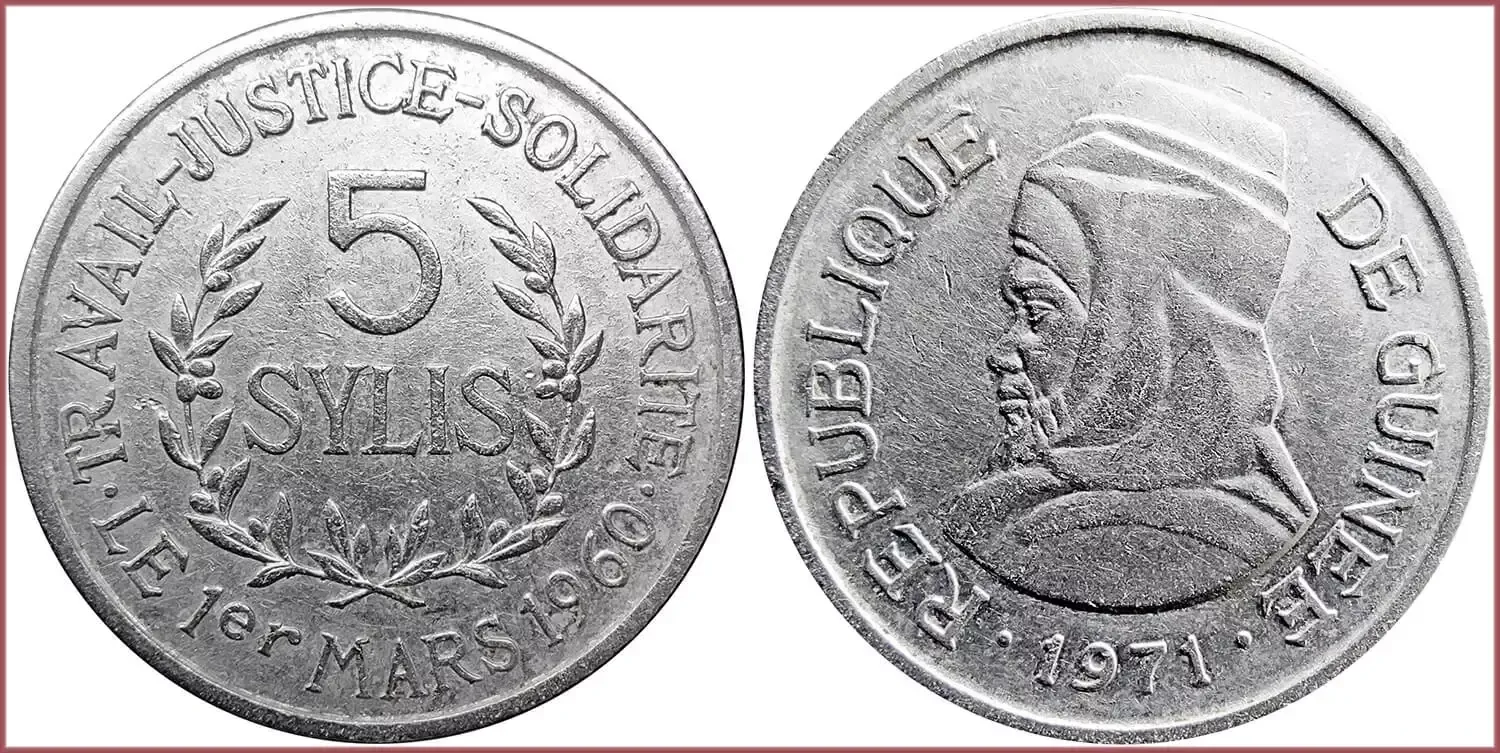SYLI: COIN OF GUINEA
5 syli, 1971: Republic of Guinea
5 SYLIS: denomination of the coin.
TRAVAIL - JUSTICE - SOLIDARITE: motto in french from national coat of arms — Work, Justice, Solidarity.
LE 1-er MARS 1960: on March 1, 1960 Guinea introduced its first currency, the Guinean franc (the first monetary reform).
REPUBLIQUE DE GUINEE: Republic of Guinea.
Samori Ture — Muslim cleric, a military strategist, a deeply religious Muslim of the Maliki jurisprudence of Sunni Islam. Samori resisted French colonial rule in West Africa from 1882 until his capture in 1898. He was the great-grandfather of Guinea's first president, Ahmed Sékou Touré.
- Aluminium: 28 mm - 2.28 g
- Reference price: 3.9$
COIN SYLI — WHERE & WHEN (coins catalog: by names & emitents)
- REPUBLIC OF GUINEA (1971-1977): syli = 100 cauri
SYLI as coin name.
Syli — official currency of Guinea (a country in West Africa, a former French colony) during 1971-1985.
Guinean syli was introduced instead of the local franc and 14 years later was replaced again by the Guinean franc. The currency was divided into 100 cauri.
In total, only one series of circulating syli coins was issued — aluminum 1, 2 and 5 syli in 1971. In 1977, commemorative silver 500 syli (two types) and gold 1000, 2000 syli (also two types each denominations). Themes of precious metal coins: Patrice Lumumba, Mao Zedong, Ahmed Sekou Toure...
Regarding the name of the former Guinean monetary unit, in the language of the local Susu people, "syli" means "elephant", which in 1958-1984 was depicted on the coat of arms of the state and which, in addition, was the emblem of the then ruling Democratic Party of Guinea.






